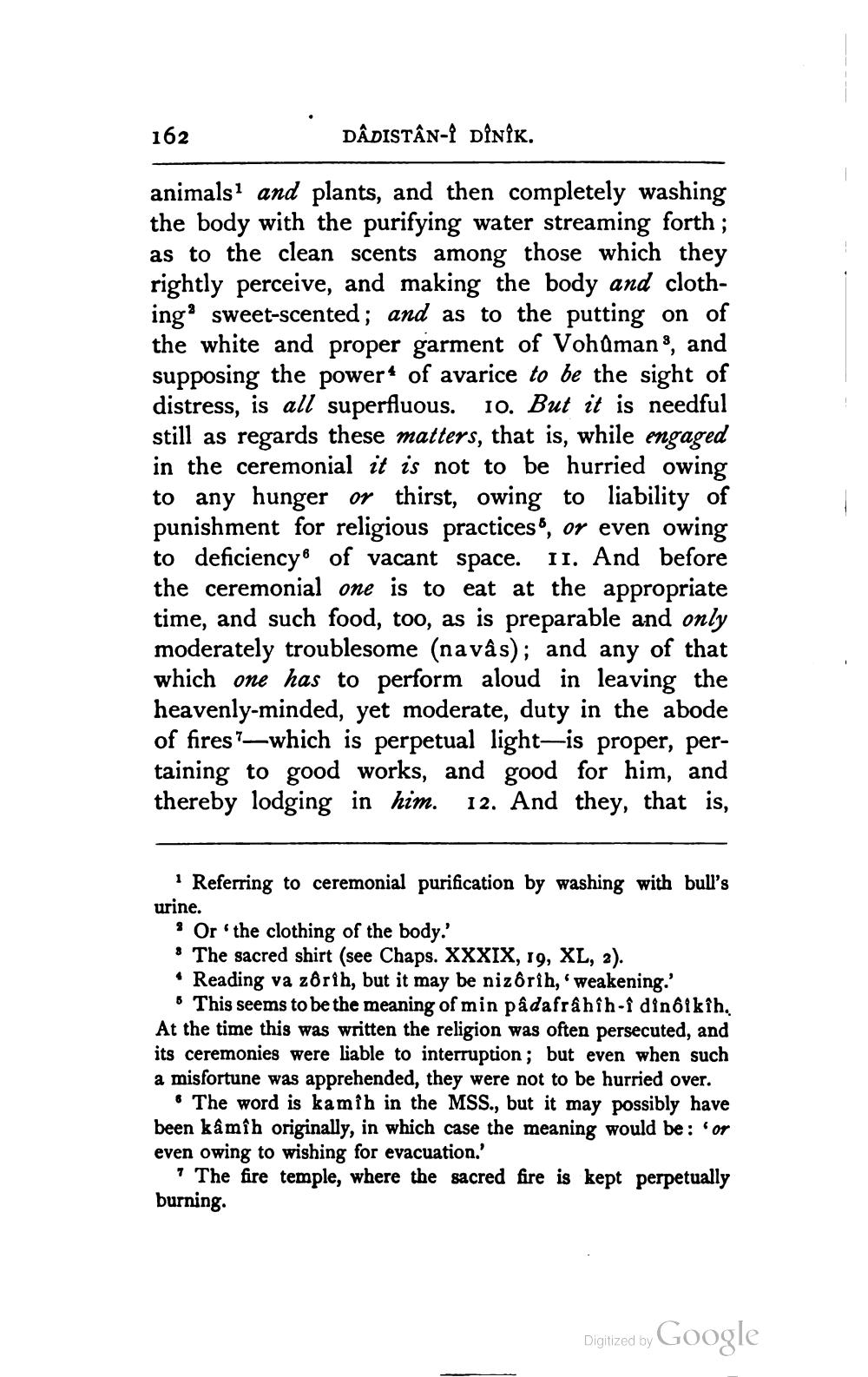________________
162
DÂDISTÂN-I DİNÍK.
animals? and plants, and then completely washing the body with the purifying water streaming forth ; as to the clean scents among those which they rightly perceive, and making the body and clothinga sweet-scented; and as to the putting on of the white and proper garment of Vohūmans, and supposing the power* of avarice to be the sight of distress, is all superfluous. 10. But it is needful still as regards these matters, that is, while engaged in the ceremonial it is not to be hurried owing to any hunger or thirst, owing to liability of punishment for religious practices, or even owing to deficiency of vacant space. II. And before the ceremonial one is to eat at the appropriate time, and such food, too, as is preparable and only moderately troublesome (navås); and any of that which one has to perform aloud in leaving the heavenly-minded, yet moderate, duty in the abode of fires which is perpetual light—is proper, pertaining to good works, and good for him, and thereby lodging in him. 12. And they, that is,
* Referring to ceremonial purification by washing with bull's urine.
? Or the clothing of the body.' • The sacred shirt (see Chaps. XXXIX, 19, XL, 2). • Reading va zôrih, but it may be nizôrih,' weakening.'
* This seems to be the meaning of min pâdafrâhîh-i dinbikîh. At the time this was written the religion was often persecuted, and its ceremonies were liable to interruption; but even when such a misfortune was apprehended, they were not to be hurried over.
The word is kamih in the MSS., but it may possibly have been kâmîh originally, in which case the meaning would be: 'or even owing to wishing for evacuation.'
7 The fire temple, where the sacred fire is kept perpetually burning.
Digitized by Google




